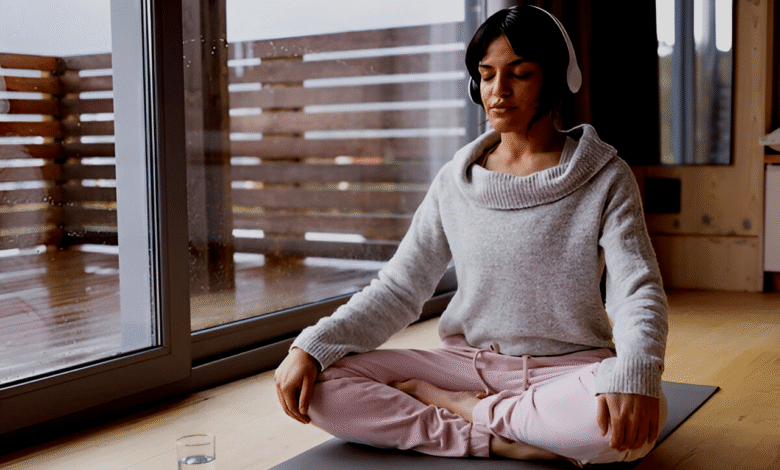How to Build a Mental Health Routine During School Years
Mental health routine for students Learn practical strategies to manage stress boost focus and maintain wellbeing during demanding school years.

Mental health is a critical aspect of a student’s overall well-being, yet it is often overlooked during the demanding school years. Between exams, assignments, social pressures, and extracurricular commitments, students frequently experience stress, anxiety, and burnout. Establishing a mental health routine can help manage these challenges, promoting emotional resilience, better focus, and long-term well-being. By incorporating simple yet effective habits, students can create a balanced lifestyle that supports both academic success and personal happiness.
The school years are a formative period where young individuals develop lifelong habits both good and bad. Without proper mental health practices, stress can accumulate, leading to exhaustion, decreased motivation, and even more severe conditions like anxiety or depression. A structured mental health routine acts as a preventive measure, helping students navigate challenges with greater ease. This article explores practical strategies to build and maintain such a routine, ensuring that students not only survive but thrive during their academic journey.
How to Build a Mental Health Routine During School Years
The Impact of School Stress on Mental Well-being
The constant pressure of academic deadlines, social expectations, and extracurricular commitments creates a perfect storm for student stress. When left unmanaged, this stress manifests as anxiety, irritability, exhaustion, and even physical symptoms like headaches or insomnia. Over time, chronic stress impairs cognitive function reducing memory retention, problem-solving abilities, and creativity while also weakening emotional resilience.
Building Prevention Through Sustainable Habits
A mental health routine goes beyond simply reacting to bad days it establishes daily practices that strengthen emotional stability before crises occur. Unlike quick fixes (like cramming for exams or relying on caffeine), sustainable habits create lasting change by regulating stress hormones, improving sleep quality, and enhancing mood naturally. For instance, consistent mindfulness practice physically rewires the brain to handle stress better, while regular exercise boosts endorphins that combat anxiety. These habits work cumulatively; just as poor routines gradually erode mental health.
Understanding the Importance of Mental Health in School
The Cognitive and Social Toll of Poor Mental Health
The brain under chronic stress operates at diminished capacity memory formation falters, attention spans shorten, and critical thinking skills decline. Neuroscientific research shows that prolonged anxiety floods the system with cortisol, which physically damages the hippocampus (the brain’s memory center) while overstimulating the amygdala (the fear response center). This biological imbalance explains why stressed students might stare at textbooks for hours yet retain little information.
The Power of Preventative Mental Health Care
Proactive mental wellness functions like daily dental hygiene small, consistent practices prevent major crises. Emotional regulation skills act as shock absorbers for academic pressures, allowing students to navigate setbacks without spiraling. Simple techniques like morning intention-setting or five-minute breathing exercises between classes create “stress buffers” that accumulate throughout the day. These micro-practices rewire neural pathways over time, strengthening the prefrontal cortex (the brain’s executive control center) to better manage overwhelming emotions.
Key Components of a Mental Health Routine
Prioritize Sleep and Rest
Sleep is the foundation of mental well-being. Many students sacrifice sleep to meet deadlines or study for exams, but this habit backfires by reducing focus and increasing irritability. Aim for 7-9 hours of quality sleep each night by maintaining a consistent bedtime, avoiding screens before sleep, and creating a calming pre-sleep routine.
Practice Mindfulness and Meditation
Mindfulness techniques, such as deep breathing exercises or guided meditation, help reduce anxiety and improve emotional self-regulation. Even five minutes of meditation in the morning or before bed can enhance clarity and reduce stress. Apps like Headspace or Calm offer beginner-friendly sessions tailored for students.
Stay Physically Active
Exercise releases endorphins, which naturally boost mood and energy levels. Whether it’s a short walk, yoga, or team sports, regular physical activity helps alleviate stress and improves concentration. Incorporating movement into daily life like taking stairs instead of elevators can also make a difference.
Maintain a Balanced Diet
Nutrition plays a key role in brain function and emotional stability. Skipping meals or relying on junk food can lead to energy crashes and mood swings. Eating balanced meals with whole grains, lean proteins, and healthy fats supports sustained energy and mental clarity.
Develop Strong Social Connections
Isolation worsens stress, while positive social interactions provide emotional support. Make time for friends, family, or mentors who offer encouragement. Joining clubs or study groups can also foster a sense of belonging and reduce feelings of loneliness.
Set Realistic Goals and Manage Time Effectively
Overcommitment leads to burnout. Break tasks into smaller, manageable steps and use planners or digital tools to organize assignments. Learning to say no to unnecessary obligations helps maintain a healthy workload.
Seek Professional Help When Needed
Therapy or counseling should never be stigmatized. If stress becomes unmanageable, speaking with a school counselor or mental health professional can provide coping strategies and emotional relief.
Overcoming Common Challenges
Overcoming Implementation Barriers Through Micro-Habits
The biggest obstacle to mental health routines isn’t their complexity, but the perfectionist mindset that demands immediate, dramatic results. Students often abandon practices when they can’t dedicate 30 minutes daily, not realizing that neuroscience shows even 90 seconds of focused breathing can reset stress responses. Effective implementation leverages the “2-minute rule” – if a habit takes less than two minutes (like jotting down three gratitude’s or doing a quick stretch), it’s far more likely to stick.
Debunking the Productivity Paradox of Self-Care
The “I don’t have time” objection crumbles when students recognize that mental health maintenance operates like compound interest in a savings account. Research indicates that students who invest 20 minutes daily in mindfulness show a 32% improvement in focus, effectively gaining back that time through enhanced efficiency. This creates a positive feedback loop: better sleep → sharper focus → faster homework completion → more free time → reduced stress. The social perception challenge requires cognitive reframing – self-care isn’t skipping responsibilities to indulge.
Read More: How Esports is Becoming a Career Path for U.S. Students
Conclusion
Mental health is not a luxury it’s a necessity, especially during the demanding school years. By establishing a consistent mental health routine, students can better manage stress, improve focus, and maintain emotional well-being. Small daily habits, from mindfulness exercises to proper sleep, create a strong foundation for resilience. When students prioritize self-care, they don’t just enhance their academic performance they also build lifelong skills for handling challenges with confidence and clarity.
Ultimately, a mental health routine is about sustainability, not perfection. There will be days when stress feels overwhelming, but having a structured approach makes it easier to bounce back. Whether through journaling, physical activity, or seeking support, every effort contributes to long-term well-being. By committing to these practices early, students can navigate school pressures more effectively while fostering a healthier, happier mindset that extends far beyond the classroom.
FAQs
Why is mental health important for students?
Mental health affects focus, memory, and emotional stability, directly impacting academic performance and personal growth.
How can I manage stress during exams?
Practice time management, take regular breaks, use relaxation techniques, and ensure adequate sleep and nutrition.
What if I don’t have time for self-care?
Start with small habits, like 5-minute breathing exercises, and gradually incorporate more as you adjust your schedule.
When should I seek professional help?
If stress, anxiety, or sadness interfere with daily life for an extended period, consulting a counselor or therapist is advisable.
Can social media affect mental health?
Excessive use can lead to comparison and anxiety; setting limits and engaging in offline activities helps maintain balance.







